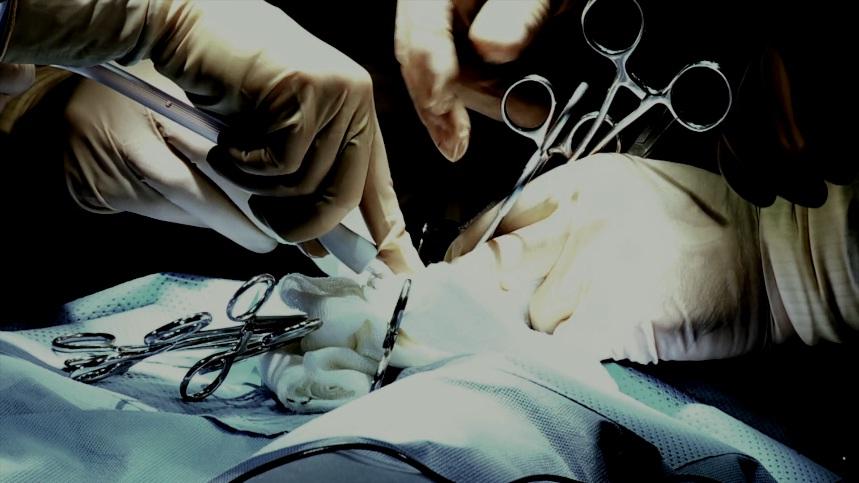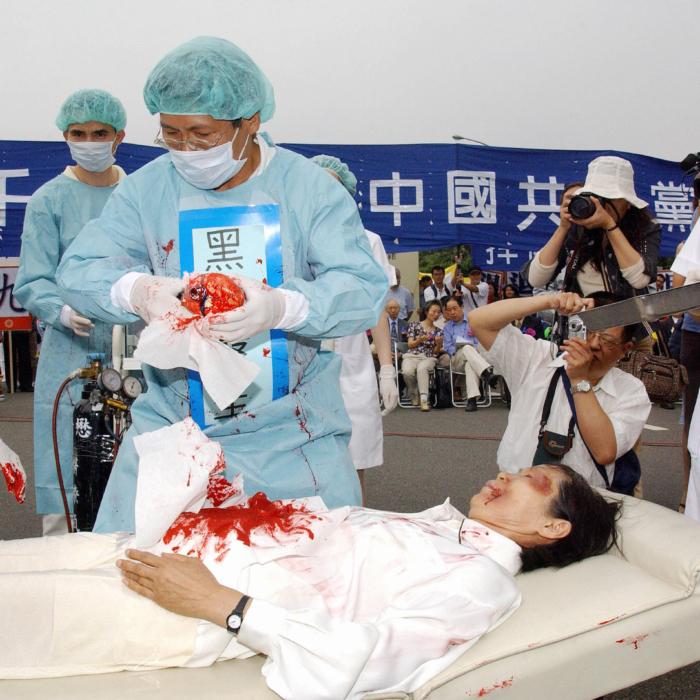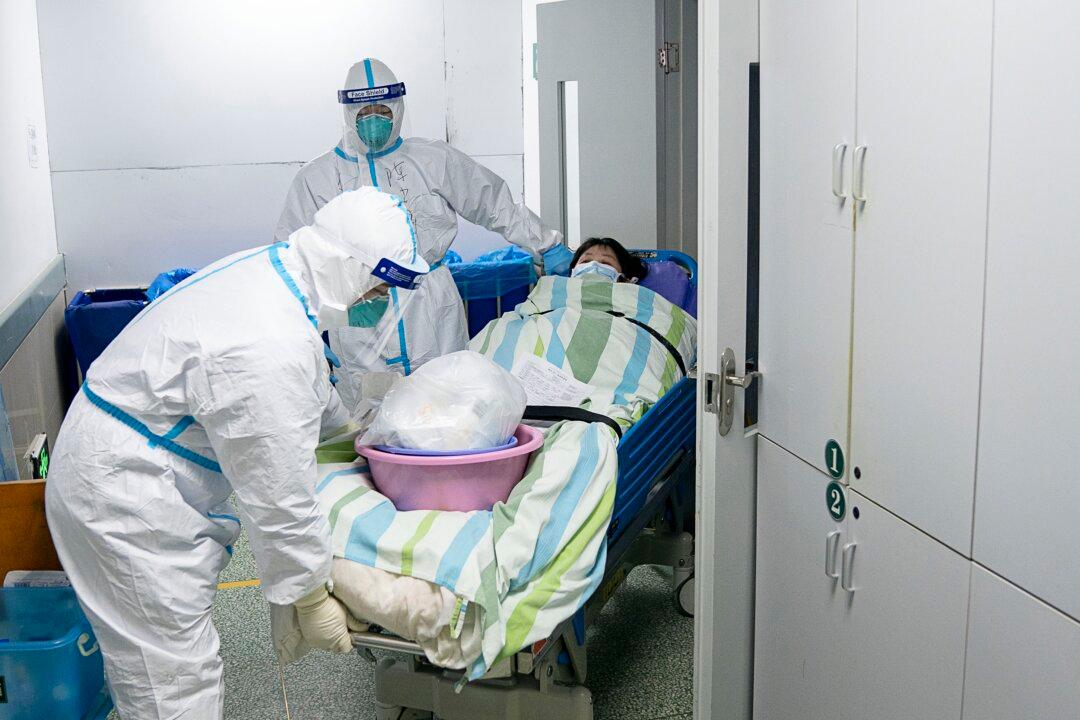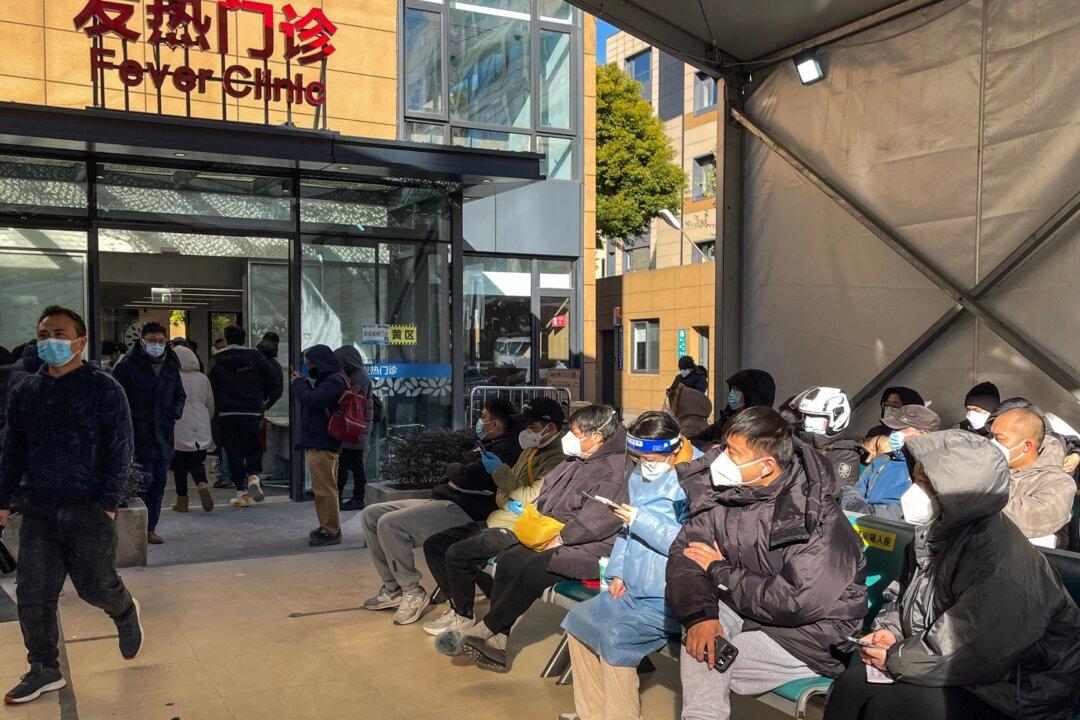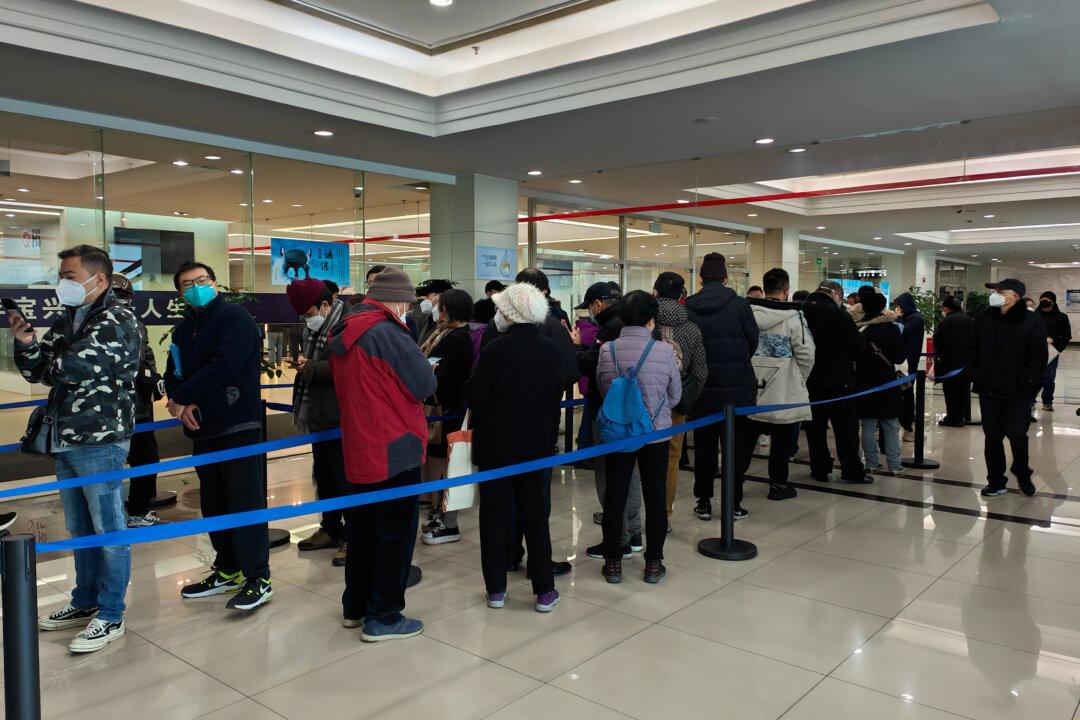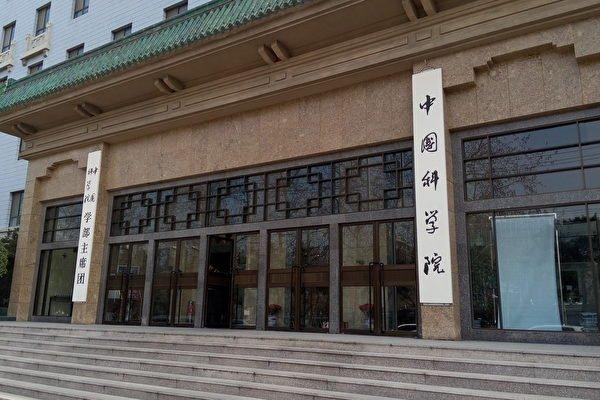At least eight organ transplant specialists in China died in 2023. Six were eminent physicians in the Chinese Communist Party (CCP), and several were suspected of involvement in forced organ harvesting. Their deaths highlight China’s burgeoning transplant industry, which is accused of using persecuted groups such as Falun Gong as living organ banks.
On March 7, He Jieqing, former director of the urology department of Jiangxi Provincial People’s Hospital and a CCP member, died in the hospital where she had worked at the age of 85.
He Jieqing was born in 1938, graduated from medical school in 1961 and was assigned to Jiangxi Hospital, where she worked in both general surgery and urology surgery, becoming the director of urology at the hospital in 1986. During her long career, she was the recipient of many awards, a member of the International Society of Urology, and a governing member of the Jiangxi Provincial Medical Association.
According to her official obituary, He Jieqing became the director of urology at Jiangxi Provincial People’s Hospital in 1986. In July 1994, she presided over the hospital’s first kidney allograft and supported the pioneering work of transplant surgeons Meng Dongliang and Li Xinchang.
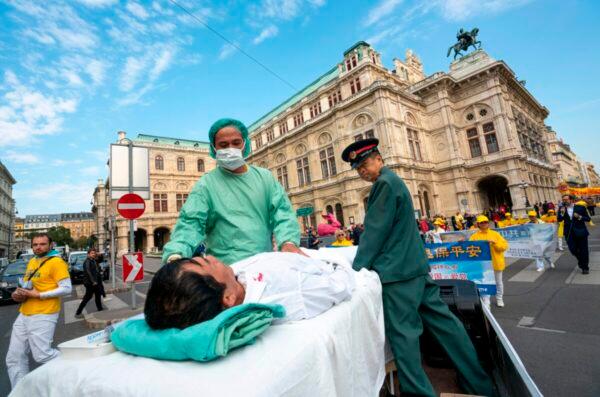
CCP Organ Transplant Experts and High-Profile Members Die During COVID Outbreak
Since China’s recent COVID-19 outbreak began late last year, the deaths of high-ranking CCP members, as well as CCP-connected celebrities, experts, and scholars in various fields, have made headlines. Many of the prominent deaths come from the medical, pharmaceutical, and biotechnology fields.Among these, the deaths of a number of organ transplant specialists are notable.
Zhang Xizeng, a professor and former director of the thoracic oncology department at Tianjin Medical University Cancer Hospital, died on Feb. 26 at the age of 90. Zhang pioneered the removal of malignant tumors from the sternum, as well as allogeneic hip transplantation.
On Feb. 8, Zhang Xiaobin, a CCP member and expert in urology and andrology, and a founder of the urology department of Hubei Provincial People’s Hospital, died of illness in Wuhan at the age of 79. As one of the founders of the hospital’s urology department, Zhang was involved in the world’s first testicular allograft in 1985 and the world’s first fetal donor adrenal gland transplant to treat Addison’s disease in 1987, according to his official obituary.
On Jan. 30, Li Jieshou, an “excellent member of the CCP,” according to his official obituary, died in Nanjing at the age of 98. Li was a member of the Chinese Academy of Engineering, on the Faculty of the Chinese Academy of Medical Science, and former Vice President of Nanjing General Hospital of the Nanjing Military Command.
Li and the Nanjing General Hospital of the Nanjing Military Region, where he worked, have been placed on the WOIPFG’s tracking list for their suspected involvement in forced organ harvesting. Li was chief of the Key Laboratory of Organ Transplantation of the People’s Liberation Army. He was the first person to initiate “Asian small intestine allotransplantation.” In April 2003, he performed the first human liver and hepato-intestinal allotransplantation in Asia.
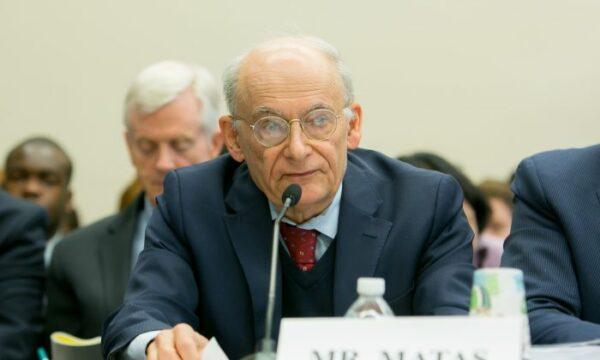
Forced Organ Harvesting
Zhang was suspected of participating in forced kidney transplantation and was tracked by WOIPFG.On Jan. 8, Yang Chenyuan, a pioneering heart surgeon, died at the age of 86. In 1970, Yang and two other professors completed the first extracorporeal circulation open-heart surgery at Union Medical College Hospital, in Wuhan. In the 1990s, Yang was the first to use the Cabral technique to perform aortic dissection aneurysm resection in China, and also the first to perform orthotopic heart transplantation in central and southern China.
In 1994, Yang presided over the first heart transplant operation at Wuhan Union Medical College Hospital—one of the first successful heart transplants in China.
Yang’s honors from the CCP included the titles of “Model Communist,” “Outstanding CCP Member” and a medal for “50 years of glorious service to the party.”
On Jan. 4, Ren Zhenyuan, a CCP member and former president of Beijing Chaoyang Hospital, died at the age of 92. Ren was appointed President of Beijing Chaoyang Hospital in 1984. The official obituary notes that he performed his first successful kidney transplant in 1991.
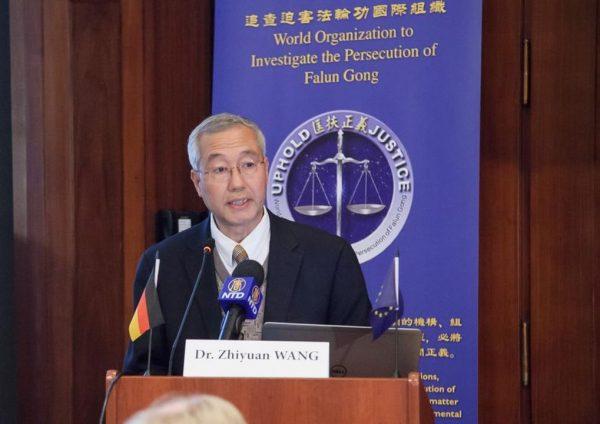
Personnel Lists
In September 2014, WOIPFG released a report announcing a list of 1,814 medical personnel suspected of participating in the forced organ harvesting of Falun Gong practitioners’ organs, across 228 hospitals in China.According to the report, after 2000, a large number of hospitals across China became involved in organ harvesting and organ transplantation, with even some small hospitals without sufficient qualifications getting into the organ transplant business.The organ transplant boom coincided with the CCP’s mass extermination of Falun Gong practitioners.
The investigation revealed that after the CCP began its persecution of Falun Gong in 1999, a large number of military and police hospitals, along with other hospitals across China, began organ transplant programs or stepped up existing transplant programs.
The massive organ transplant increase occurred as Falun Gong practitioners began to be abducted and detained, under Jiang’s order.
Falun Gong, also known as Falun Dafa, is an ancient Chinese spiritual practice consisting of simple, slow-moving meditation exercises and teachings based on the principles of truthfulness, compassion, and tolerance. It grew in popularity during the 1990s, with 70 million to 100 million adherents in China by the end of the decade, according to official estimates at the time.
